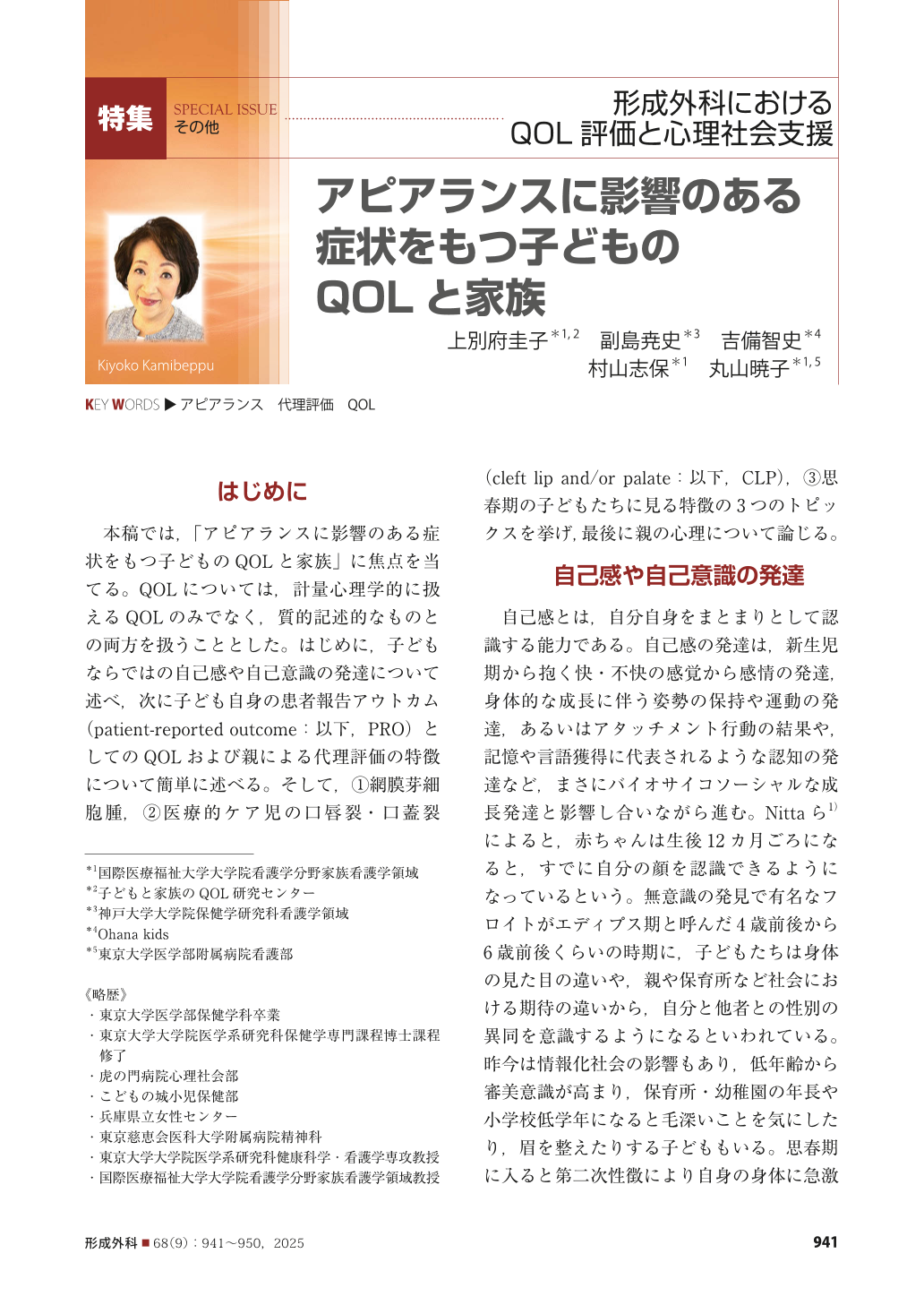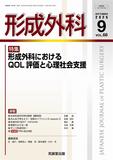Japanese
English
- 有料閲覧
- Abstract 文献概要
- 1ページ目 Look Inside
はじめに
本稿では,「アピアランスに影響のある症状をもつ子どものQOLと家族」に焦点を当てる。QOLについては,計量心理学的に扱えるQOLのみでなく,質的記述的なものとの両方を扱うこととした。はじめに,子どもならではの自己感や自己意識の発達について述べ,次に子ども自身の患者報告アウトカム(patient-reported outcome:以下,PRO)としてのQOLおよび親による代理評価の特徴について簡単に述べる。そして,①網膜芽細胞腫,②医療的ケア児の口唇裂・口蓋裂(cleft lip and/or palate:以下,CLP),③思春期の子どもたちに見る特徴の3つのトピックスを挙げ,最後に親の心理について論じる。
The quality of life of so many children and their families has been improved by the wonderful skills of plastic surgeons. In the cases of children with retinoblastoma, medical complexity, or visible differences it is not always possible to solve cosmetic (or functional) problems through plastic surgery. Consequently, parents continue to be concerned while shifting the role of self-care to their child in accordance with their childʼs growth and development. During adolescence, when aesthetic sensitivity is high and interest in self and others increases, individuals with visible differences are often more vulnerable to stigmatization and have lower self-esteem compared to their childhood days. Parentsʼ strong feelings of guilt or acting out of guilt over their childʼs symptoms and/or appearance can interfere with the parent-child relationship and lead to a situation in which the child's own wishes are not respected. To prevent this from happening, healthcare professionals should be sensitive to and try to understand the parentsʼ feelings, and they should support the feelings of pediatric patients, taking into account their opinions and wishes. Taking these aspects of the relationship between parents and children and within the family as a whole into account is the best approach to enhancing the quality of life in these children.

Copyright© 2025 KOKUSEIDO CO., LTD. All Rights Reserved.


